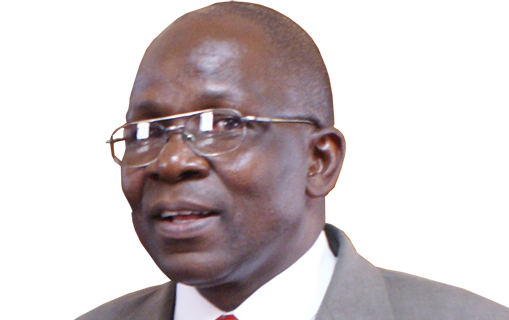
FACTIONAL fights within the opposition MDC-T seem to have spilled over into the Bulawayo City Council (BCC) chamber effectively splitting into two distinct groups. NQOBILE BHEBHE CHIEF REPORTER
The main opposition MDC-T swept all the BCC’s 29 seats after the July 31 elections, but the advent of the splinter MDC-Renewal team has seen tensions within the local authority that had been simmering for the past few months exploding last week following an attempted vote of no confidence on mayor Martin Moyo and his deputy Gift Banda.

It had been envisaged that MDC-T’s sole stewardship of BCC would be “good” for governing the city as the councillors would be “united” in tackling council issues and decisions would be passed and implemented swiftly due to the absence of opposing political and policy views.

However, all has not been smooth sailing for the MDC-T-led council. Signs of cracks appeared in February when Southern Eye first revealed that about 18 out of the 29 councillors had been mobilised to pass a vote of no confidence against Moyo and Banda.
That was even before the birth of the MDC-Renewal.
In the run-up to last week’s full council meeting, councillors linked to the renewal team pushed for changes by calling for the election of new council committee members.
According to the Urban Councils Act Section 103, committee chairpersons are rotated on an annual basis in August, but this has not happened at the Bulawayo City Council since 2009.
In July, councillors aligned to the MDC-Renewal were still caucusing a motion to push through proposed changes when a vote was passed to continue with the current status quo.
- Chamisa under fire over US$120K donation
- Mavhunga puts DeMbare into Chibuku quarterfinals
- Pension funds bet on Cabora Bassa oilfields
- Councils defy govt fire tender directive
Keep Reading
Councillors declined to change the committees on the basis that change was disruptive and was likely to affect service delivery.
However, a motion to rotate the chairpersons, which would have paved way for ousting of the mayor and deputy, was moved in last week’s explosive meeting.
MDC-Renewal-aligned councillors were confident they had garnered enough support in chambers to influence a change of committee chairpersons and later on the mayor and his deputy.
That resulted in a vote which was evenly divided with 15 councillors voting to maintain the status quo while 14 were in favour of change.
Suddenly, the undisputed and overwhelming majority that the MDC-T enjoyed in council chambers had been eroded and party resolutions no longer carry as debates and concessions have to be made before any implementation.
Residents’ associations, former councillors and commentators say the new divisions are likely to have a negative impact on service delivery as councillors would now concentrate on outwitting each other along political lines while negating their core business in the process.
Bulawayo Residents’ Association (Bura) chairman Winos Dube expressed concern on the split saying it was an unfortunate development that would have dire repercussions.
“It’s an unfortunate development and really bad for the city,” said Dube.
“This will no doubt have a negative impact in the running of council as councillors will waste critical time flexing their political power.
“What we need as Bulawayo now is a united council. How will they spearhead development and lobby for investors to revive the city when they are divided?”
Dube challenged the councillors to “rise above party lines and focus on serving the residents who voted for them for the benefit of the city”.
Bulawayo-based commentator Godwin Phiri said it was important for councillors not to put political affiliation ahead of council duties. He said as the political fights unfold, the biggest losers would be the residents.
“There is no harm in having four or even five political parties in council, but when they are doing council business, they should form a united front,” he said.
“However, the current political situation in Zimbabwe is such that elected officials now tend to spend time consolidating their factions and it’s obvious the biggest losers are the residents.
“Key decisions that affect the running of the city might be stalled and service delivery will suffer as councillors might resort to sabotaging each other.”
Former deputy mayor Amen Mpofu also weighed in saying although it was normal for any council to have different political parties, it was dangerous for party affiliation to take centre stage.
“What happened last week was unfortunate,” he said.
“Councillors made history by turning respected chambers into a venue for a political rally and the mayor (Moyo) is to blame for failing to stamp his authority.
“However, the danger is that the councillors have unwittingly invited (Local Government minister Ignatius) Chombo to come in. We know what he does with local authorities under opposition parties.”
The former deputy mayor also raised concern that service delivery might take a knock due to the “unnecessary infighting”.
“I appeal to council to put service delivery at the forefront because the chamber is strictly for council business not for slogans, but that might not be the case as we have very young councillors who will want to dwell on politics rather than their core business of running the city,” said Mpofu.
During the stormy meeting which degenerated into chaos with councillors denigrating each other’s political parties, the mayor rebuked his colleagues imploring them to refrain from adopting party lines when conducting council business.










